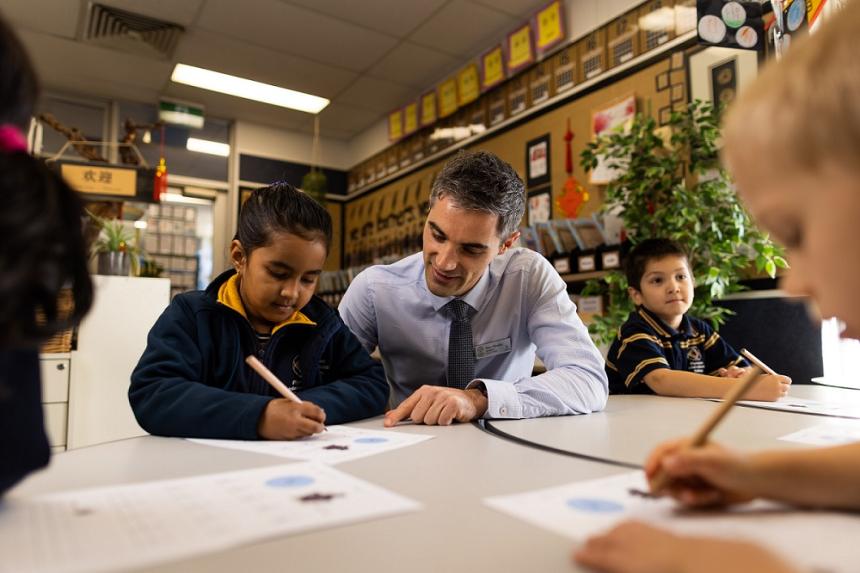
Over 1,300 education practitioners have completed AERO’s evidence use survey. The data is helping us to understand how early childhood professionals, school teachers and school leaders currently use evidence in their work. It builds on what is currently known about evidence use in education by including practitioners from every Australian jurisdiction, incorporating a focus on early childhood and care (ECEC), and examining a range of different types of evidence.
A first look at the data shows that many practitioners are already using evidence in their practice. However, barriers still exist, with not all educators feeling confident using evidence.
One early finding is that educators, teachers and leaders use practitioner-generated evidence to inform their practice much more often than they use research evidence. Practitioner-generated evidence includes information or data generated through daily practice. It often involves insights drawn from child or student assessments or observations. Research evidence is academic research, usually published as books, articles, reports or summaries. Nearly three-quarters of ECEC respondents regularly use forms of practitioner-generated evidence “often or very often”, while just under half regularly use research evidence. In schools, almost two-thirds of respondents use forms of practitioner-generated evidence “often” or “very often”, while 40% regularly use research evidence.
It makes sense that practitioners are reporting that they use evidence generated through their daily practice more than research evidence. After all, observations and formative assessment are a regular, almost constant part of an educator or teacher’s toolkit.
However, it is critical that practitioners also use research evidence that is rigorous and relevant to their context when they want to be more confident in their decision-making. For example, when planning play activities, an ECEC practitioner can look to the research evidence on effective ways of extending children’s language and problem solving during imaginative play. In this situation, rigorous research evidence could help guide decision-making.
Using research evidence can be challenging. The survey results show that even if practitioners believe that research evidence is useful, they may not regularly use it. One possible reason could be a lack of confidence in distinguishing rigorous evidence – that is, evidence made using high-quality research methods. For example, of ECEC and school respondents who believe recommendations from academic research are a useful source of evidence, but don’t regularly use these recommendations to trial or refine their practice, 58% said they lack confidence determining if evidence is rigorous.
There are more questions for AERO to explore and report on, such as:
- How well is evidence being used?
- When and how do practitioners combine research evidence with practitioner-generated evidence?
- How does support provided in a school or ECEC service environment influence use of research evidence?
- Apart from confidence in assessing rigour and relevance, what other barriers might be stopping practitioners from using research evidence?
- What else does the survey data tell us about how evidence use differs by practitioners’ roles, level of experience and context?
To investigate these questions, AERO will be carrying out interviews with a number of practitioners across Australia and further analysing the survey data.
Julie People, AERO’s Program Director for Evidence Implementation and Evaluation, said:
Our early findings will enable us to ensure our resources are helpful, appropriate and easy to use. We look forward to learning more and sharing deeper findings in this area as our studies continue.
Evidence tools
AERO has developed a range of evidence tools to support practitioners to deepen their knowledge and application of practitioner-generated evidence, and research evidence. These tools include:
- Standards of evidence: to help AERO and the education community make consistent and transparent judgements when assessing education evidence.
- Research reflection guide: to help education practitioners and policymakers reflect on what they have learned from reading a piece of research evidence on a particular policy, program or practice which they may be considering implementing.
- Evidence rubric: to help in evaluating the effectiveness of a new or existing policy, program or practice.